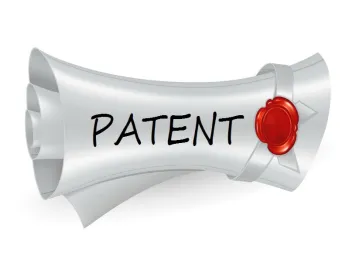On February 22, 2017, in reversing the decision of the US Court of Appeals for the Federal Circuit, an essentially unanimous US Supreme Court ruled that the “supply of a single component of a multi-component invention for manufacture abroad does not give rise to liability” under 35 U.S.C. § 271(f)(1). Life Technologies Corp. v. Promega Corp. Case No. 14-1538 (S.C., Feb 27, 2016) (Sotomayor, Justice).
Background
Section 271(f)(1) states that:
Whoever without authority supplies or causes to be supplied in or from the United States all or a substantial portion of the components of a patented invention, where such components are uncombined in whole or in part, in such manner as to actively induce the combination of such components outside of the United States in a manner that would infringe the patent if such combination occurred within the United States, shall be liable as an infringer. (emphasis added)
Promega’s asserted patents related to DNA amplification kits. LifeTech’s accused kit consisted of five components, including an enzyme called Taq polymerase that is essential to the operation of the kit. LifeTech manufactures Taq polymerase in the United States, and then ships it to a facility in the United Kingdom for incorporation into the accused kit. The accused products are sold worldwide, including in the United States.
The district court granted Lifetech’s motion for judgment as a matter of law that it was not liable under §271(f)(1) for sales outside of the US because the phrase “all or a substantial portion” does not encompass the supply of a single component of a multi-component invention. In doing so, the district court set aside a jury verdict of $52 million. The Federal Circuit reversed, stating that “there are circumstances in which a party may be liable under § 271(f)(1) for supplying or causing to be supplied a single component for combination outside the United States.” Because Taq polymerase was essential to the operation of the kits, the Federal Circuit found it was a “substantial portion” of the patented invention, and reinstated the verdict.
The Supreme Court granted certiorari to answer the following question:
Whether the Federal Circuit erred in holding that supplying a single, commodity component of a multi-component invention from the United States is an infringing act under 35 U.S.C. § 271(f)(1), exposing the manufacturer to liability for all worldwide sales.
The Supreme Court Opinion
The key phrase of the statute that required adjudication was whether “a substantial portion” of the components of a patented invention refers to a quantitative or qualitative measurement. Relying on the text of the statute and the legislative history, the Supreme Court concluded that the statutory language “substantial portion” imposed a quantitative, not simply qualitative, requirement.
The Supreme Court determined that the term “substantial,” while having a plain meaning, was (in the context of § 271(f)(1)) ambiguous, in that in isolation it might refer to quantity or quality. However, considering the term in context, the Court found that the appropriate construction was to accord the word “substantial” a quantitative meaning. The Court noted that the words “all” and “portion” in the statute convey a quantitative meaning; an indication that “substantive” should similarly be assigned a quantitative meaning. Further, the Court explained that assigning “substantive” a qualitative meaning would render the phrase “of the components" unnecessary the first time it is used in § 271(f)(1). Because an interpretation that gives meaning to each statutory provision should be favored, this also points to a quantitative meaning.
Promega urged the Court to adopt a broader interpretation of § 271(f)(1) that essentially encompassed both qualitative and quantitative meanings of the term “substantial portion.” Under Promega’s approach, whether a given component is “a substantial portion” would depend on both the number of components involved and also on their qualitative importance to the invention overall. The Supreme Court declined to adopt this approach, stating that its task was to resolve the ambiguity presented by the statutory term, “not to compound it by tasking juries across the Nation with interpreting the meaning of the statute on an ad hoc basis.” The Court noted potential practical difficulties with Promega’s approach—specifically that it would likely be a difficult task for courts and market participants to determine the relative importance of a component(s) to an invention, when few inventions would function at all without any one of their components.
Finally, noting the multiple uses of the term “components” in the plural in § 271(f)(1), the Court held that a single component as a matter of law cannot ever constitute a “substantial portion” of the components of a patented invention under § 271(f)(1).
The Court found further support for its decision in the interplay between §§ 271(f)(1) and (f)(2). Section 271(f)(2) is a companion provision to § 271(f)(1), and reads:
“Whoever without authority supplies or causes to be supplied in or from the United States any component of a patented invention that is especially made or especially adapted for use in the invention and not a staple article or commodity of commerce suitable for substantial non-infringing use, where such component is uncombined in whole or in part, knowing that such component is so made or adapted and intending that such component will be combined outside of the United States in a manner that would infringe the patent if such combination occurred within the United States, shall be liable as an infringer.” (emphasis added)
Section 271(f)(2) was not invoked in this case because Taq polymerase has many non-infringing uses. The Court noted that reading § 271(f)(1) to refer to more than one component allows the two provisions to work in tandem. On the other hand, reading § 271(f)(1) to cover any single component would leave little room for § 271(f)(2) and would also undermine that section’s express reference to “any component [singular] … especially made or especially adapted for use in the invention.”
Finally, the Court observed that Congress enacted § 271(f) in response to Deepsouth Packing Co. v. Laitram Corp., 406 U.S. 518 (1972), which identified a then-existing gap in the enforceability of patent rights, i.e., that shipping components offshore and then making or using a patented product outside of the United States was not an infringement. Section 271(f) filled this gap by imposing liability where components are manufactured in the United States but assembled overseas.
Justices Alito and Thomas did not join in the majority’s analysis of the legislative history of § 271(f), with Justice Alito writing in a concurring opinion that Congress intended not only to fill the gap created by Deepsouth Packing, but to go a little further. In Alito’s opinion, the legislative history, was, unfortunately, not helpful in determining how much further.




 />i
/>i
